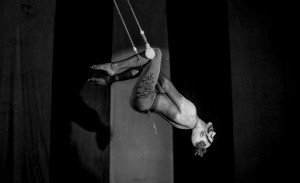
After a few months of teases and a huge buildup of fan anticipation,the first episode of Freak Show finally premiered Oct. 8 on FX, the season ending Jan 21.
It’s clever that the new season of American Horror Story is named Freak Show, because this whole show is…well, a freak show. This show is not recommended for the squeamish or the faint of heart, but is well-suited for avid horror movie watchers (hence the word “horror” in its name).
American Horror Story has an unorthodox setup: each season tells a new story with different characters, yet it keeps many of the same actors and actresses through the series. The show makes an unusual sacrifice of plot development for more variety in its seasons. One season generally is not enough to make substantial development in a story’s plot, although the writers did particularly well with Murder House and Asylum, the two seasons with the best reviews.
As someone whose favorite season of AHS was Asylum, I was very excited to see Sarah Paulson and Jessica Lange’s new characters, and sad to find out that Freak Show will be Lange’s last season with American Horror Story. Her new role of Elsa Mars, owner of a run-down carnival and freak house in Florida, certainly gave her a large spotlight for a last role.
While watching, I find that even though American Horror Story is a very gory and macabre series, it isn’t exactly scary. Since it has an uncountable number of gruesome deaths, AHS attracts the type of viewer who knows to expect a murder or kidnapping at least once every 10 minutes. All that death can get repetitive and predictable very quickly.
Overall, I was a little disappointed with Freak Show; it’s not as good as I was hoping. Freak Show focuses more on the shock value of murder than logic or the strength of the plot. This season was particularly disorganized, with the focus mainly on the minor characters, who often have the most meaningful lines of the show and, at times, greatly outperform the more famous faces of the show. For this season, the story kept suddenly focusing on and immediately dropping new characters, creating unnecessary additions to the narrative and an overloaded feeling to the story.
